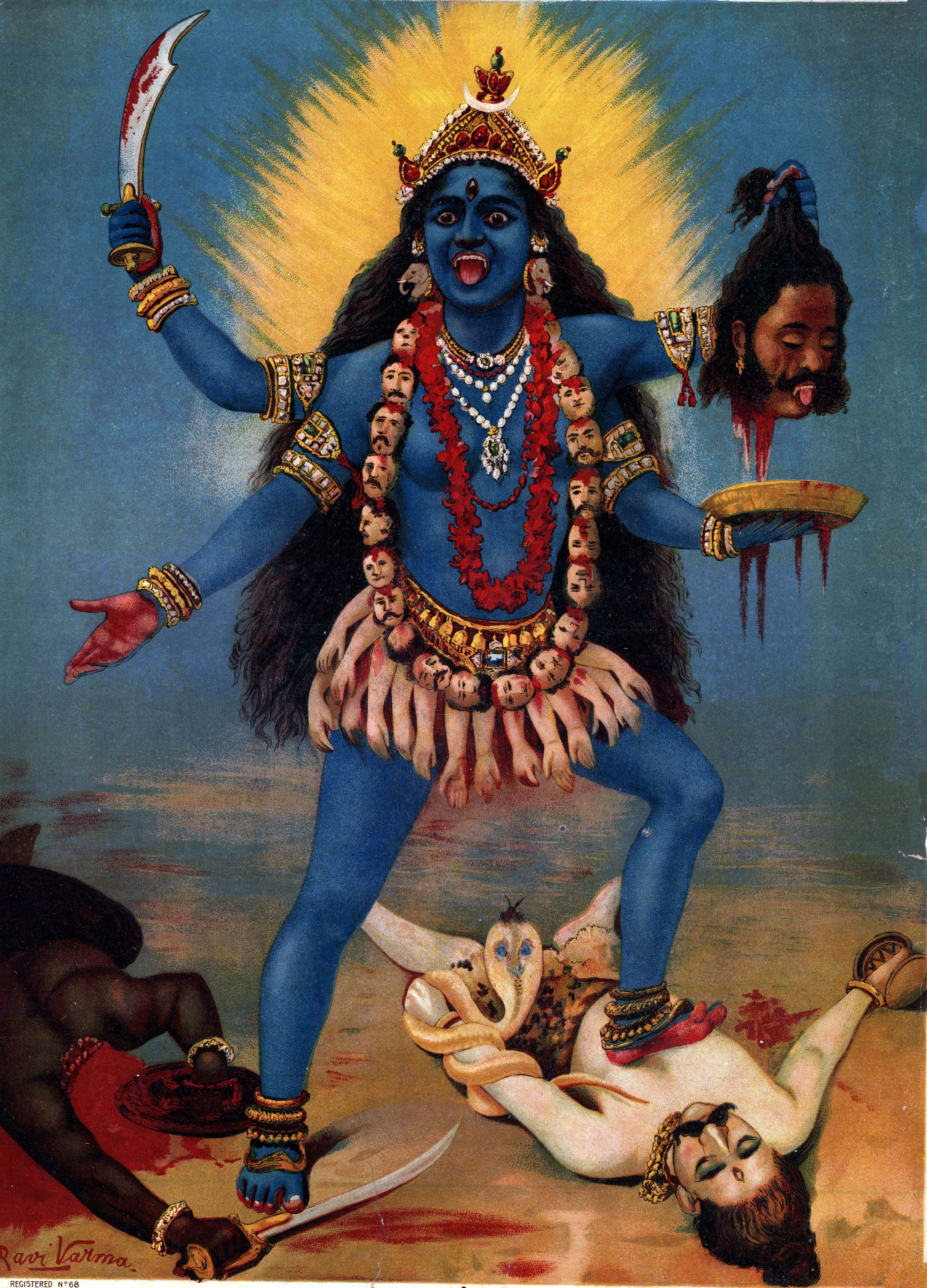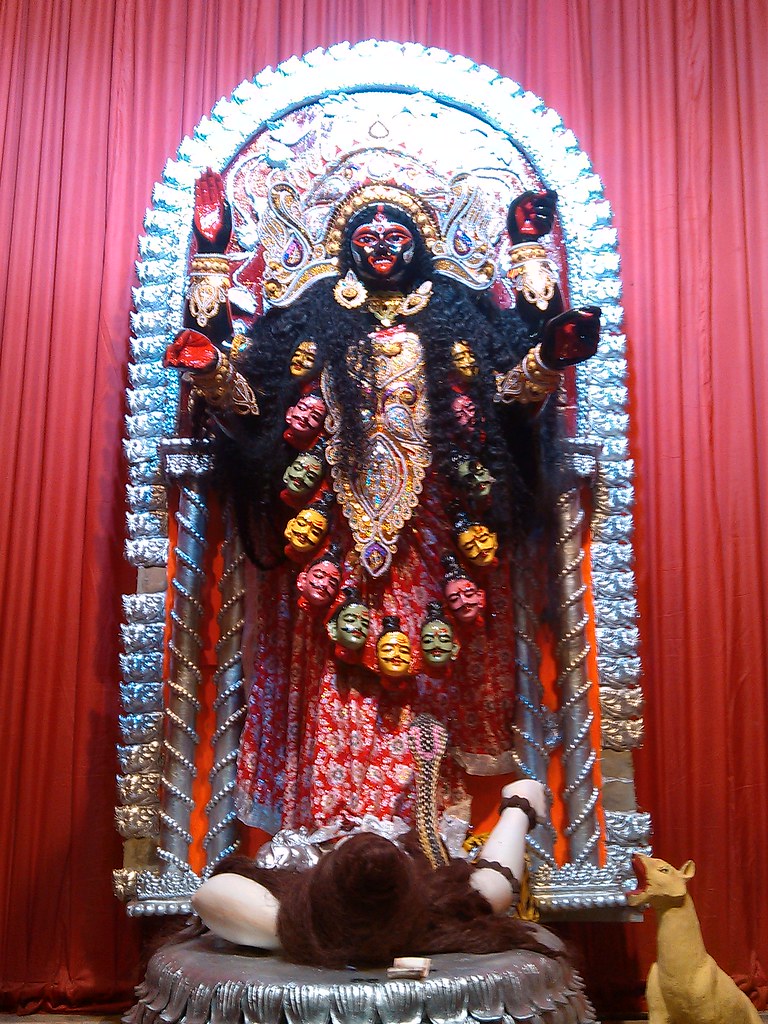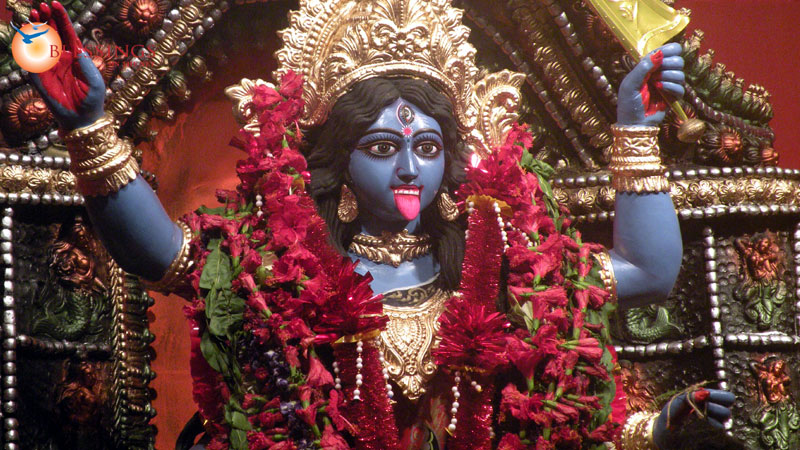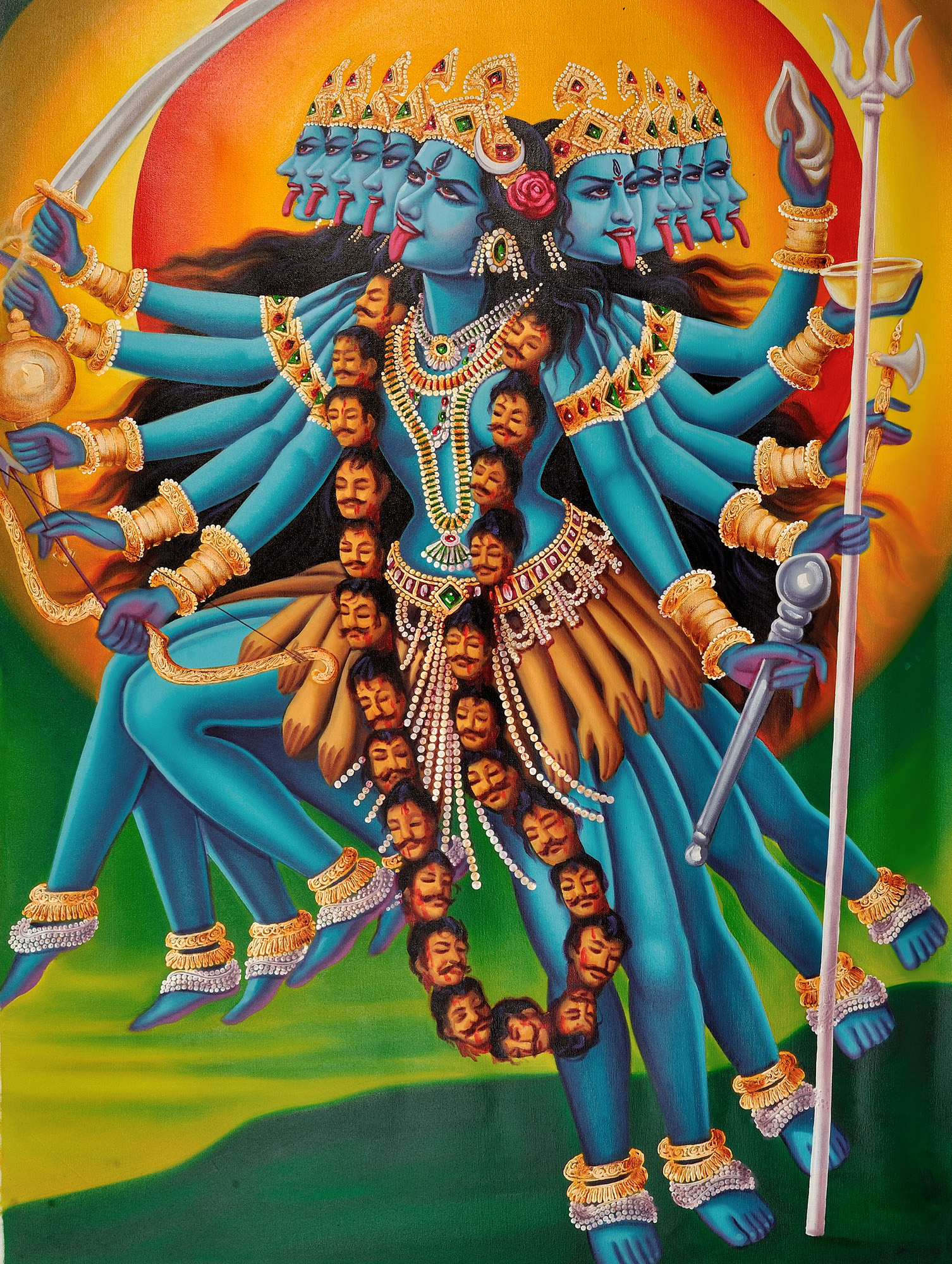Namaste, readers! I have gotten some very positive feedback on this series of conversations with Maa Kali so far. I really appreciate all of what readers have said in response - at first, I thought this kind of writing would face ridicule and derision, but so far my readers have been really open and accepting. For that I cannot thank you readers enough. There will be more to come in this series, I promise you, and one such entry is below. This next entry will be on a topic of interest for many who read this blog:
moksha, or liberation from the cycle of birth and death as explained in Hindu belief.
My questions are in plain text, while Maa Kali's are in
italics.
Om klim kalikayei namaha.
Namaste, Maa Kali.
Namaste, my child. I have personally given you the inspiration to write about moksha, liberation, because it is what all people, not just Hindus, need to hear. Who listens is not up to you to decide, but those who listen to what I channel through you shall benefit greatly from this knowledge.
Let's start with a basic definition, then. What is moksha, for those unfamiliar with it?
Liberation from karma. Most who have an inkling of knowledge about moksha understand it as liberation from the cycle of birth and death, but I am here to tell you, my child, that in truth, it is liberation from karma's bondage, from being constrained by karma.
So what is the difference between karma and the cycle of birth and death? Are they not one and the same?
No, my child. Birth and death may be how one experiences karma, and the actions of one's life determine one's future births and karma, yes. But to consider them one and the same is folly.
How so?
Think of the average person who craves what they consider moksha, liberation from birth and death. Said average person craves moksha because they are weary of their suffering. They are weary of their present lives, and because of their belief of how their present lives are affected by their past lives and the actions of their past, they confuse ending their cycle of birth and death with relief from suffering. In reality, this is not the case.
Can you explain further? Why is release from the cycle of birth and death not equivalent to the ending of suffering?
It is because this world that people like you are born in is not the only world you can experience. Ancient Hindus claimed that there are many layers of existence. This is true, and through your interaction with karma via birth and death, you can experience these many layers. Some equate release from suffering to be equivalent to being born into a higher layer of experience, which some might say is equivalent to Heaven. But while this layer of existence might be a release from your worldly suffering, it is not necessarily the end of your karma, or even of your cycle of birth and death.
Why is that?
Wanting to end one's own suffering, while an understandable, universal impulse that all life shares, is still a selfish desire. Therefore wanting to be born into Heaven arises out of selfishness, however justified that selfishness may be. It still creates karma - it still binds you to karma, because it still binds you to desire. In truth, my child, your soul, and every human soul - every soul, period - desires more than just a release from one's own suffering. Release from one's own suffering is not satisfactory, because if you are the only one who does not suffer, you shall be lonely. And loneliness - as you have experienced, my child - is one of the ultimate forms of suffering.
Why is release from one's own suffering not satisfactory?
My child, it is because in order to eliminate that ultimate suffering of loneliness, others must be released from suffering with you. It is a desire of life itself to not be alone. To alleviate that loneliness, altruism arose as a means to allow souls to help each other out of suffering. To those in what humans call Heaven, being released from one's own suffering is not enough! It is part of their innermost desire to see others join them in their joy. Therefore they sometimes volunteer to be born into your world again, still bound to karma, in order to help others eliminate their suffering so they can join the others in Heaven.
Then what is true moksha? What is true liberation from karma, birth and death?
To truly gain moksha, my child, one must not just eliminate their worldly suffering. They must not be able to experience suffering in the first place. As suffering arises from desire, this means they cannot experience desire. And to not experience desire, they must rise above selfishness - even the selfishness of loneliness that drives them to altruism.
Moksha sounds very difficult to achieve, then.
Hahahaha! It is, my child. It is not granted to many. But to whom it is granted, those granted it are merged with the force of the universe itself. They are given such status because those who are granted moksha will not use such power out of selfishness, ever, my child.
Where does that place You, Maa Kali? Are you one who has been granted moksha?
I am moksha itself, my child.
----------------------------------------
I still had questions for Maa Kali, but she grew silent at this point to any more questions I had. Instead of answering any more, she simply embraced me and filled me with love.
As usual, the disclaimers for these blog posts apply - I am not a religious authority. My writings here are not meant to be authoritative in any way, shape, or form, and I am not liable for what anyone does with this information as, again, I am not an authority figure. Please don't do anything stupid with what I've written here. Thank you. :)






